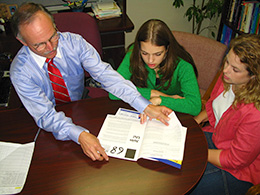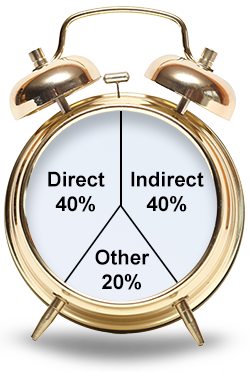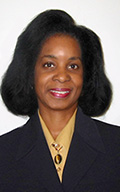How can Mr. Hunter effectively manage his responsibilities?
Page 1: Overview of School Counselors’ Roles
 That school counselors like Mr. Hunter have many responsibilities can lead to confusion about the nature of school counselors’ roles and can hinder effective management of responsibilities. According to the American School Counselor Association (ASCA), the overarching role of a school counselor is to “help all students in the areas of academic achievement, personal/ social development, and career development” to ensure that “today’s students become the productive, well-adjusted adults of tomorrow.” In order to meet these roles, school counselors must manage their time and balance their duties.
That school counselors like Mr. Hunter have many responsibilities can lead to confusion about the nature of school counselors’ roles and can hinder effective management of responsibilities. According to the American School Counselor Association (ASCA), the overarching role of a school counselor is to “help all students in the areas of academic achievement, personal/ social development, and career development” to ensure that “today’s students become the productive, well-adjusted adults of tomorrow.” In order to meet these roles, school counselors must manage their time and balance their duties.
 One challenge for Mr. Hunter is that he is still trying to figure out an effective way to juggle all of his responsibilities. However, there is a 40-40-20 method that he learned about during his school counseling training program. As shown in the graphic, Mr. Hunter allocates 40 percent of his time to direct services such as individual or group counseling, another 40 percent is used for indirect services such collaboration with other teachers, and finally he uses the remaining 20 percent of his time for other duties such as paperwork.
One challenge for Mr. Hunter is that he is still trying to figure out an effective way to juggle all of his responsibilities. However, there is a 40-40-20 method that he learned about during his school counseling training program. As shown in the graphic, Mr. Hunter allocates 40 percent of his time to direct services such as individual or group counseling, another 40 percent is used for indirect services such collaboration with other teachers, and finally he uses the remaining 20 percent of his time for other duties such as paperwork.
Roles
To manage all of their responsibilities, school counselors must serve as leaders, collaborators, and advocates for all students. School counselors like Mr. Hunter serve students from many different backgrounds and their roles should reflect such. According to the American School Counselor Association (ASCA), a school counselor has multiple roles.
| School Counselors’ Roles |
| Leader |
| Conduct all school-wide counseling activities. Conduct and coordinate group and individual counseling. Assist with transitional planning. |
| Collaborator |
| Team up with related service providers. Actively participate on multidisciplinary teams. Work with other student-support specialists. Work with school staff and parents of students. |
| Advocate |
| Promote students’ needs within the school and community. Promote plans for accommodations and modifications based on students’ needs. Refer students to appropriate specialists when additional expertise is required. |
Mr. Hunter also recognizes the importance of increasing his awareness and understanding of students’ backgrounds. He knows this information is helpful when he advocates for these students.
Listen to Bonita Flournoy as she offers a parental perspective about the relationship between school counselors and students from different backgrounds (time: 1:16).

Bonita Flournoy, EdD
Associate professor, Clark Atlanta University
School of Education, Curriculum Department
Transcript: Bonita Flournoy, EdD
For diverse students, they can turn to counselors if they need advice about careers in particular areas that may be underrepresented by those in diverse groups. I think counselors are very important in providing opportunities for students to survey different careers, possibly setting up opportunities for them to meet with experts in areas of interest.
In my opinion, there are not enough counselors. I think we need to increase the number of counselors because of the increase in student populations that have special needs. To better prepare counselors to address and support students of diverse populations, I think they need to have a better knowledge base about cultural differences. We know that certain ethnicities and diverse groups in cultural backgrounds have different perspectives. So they would need to be better prepared to be more sensitive to the needs of those particular groups and in communicating with possibly the parent in that group and finding out information from the parent on their different cultural perspectives.
Historically, special education teachers have held the primary responsibilities for providing for the needs of students with disabilities. However, as more and more students are included in the general education setting, many professionals from different disciplines, including school counselors, are required to serve the needs of those students.
On the subsequent pages of this module, we will discuss the specific roles counselors can perform in working with students with disabilities:
- Participate in the multidisciplinary team process
- Assist with behavior modification
- Provide individual or group counseling
- Assist with transition plans
- Make referrals to outside agencies